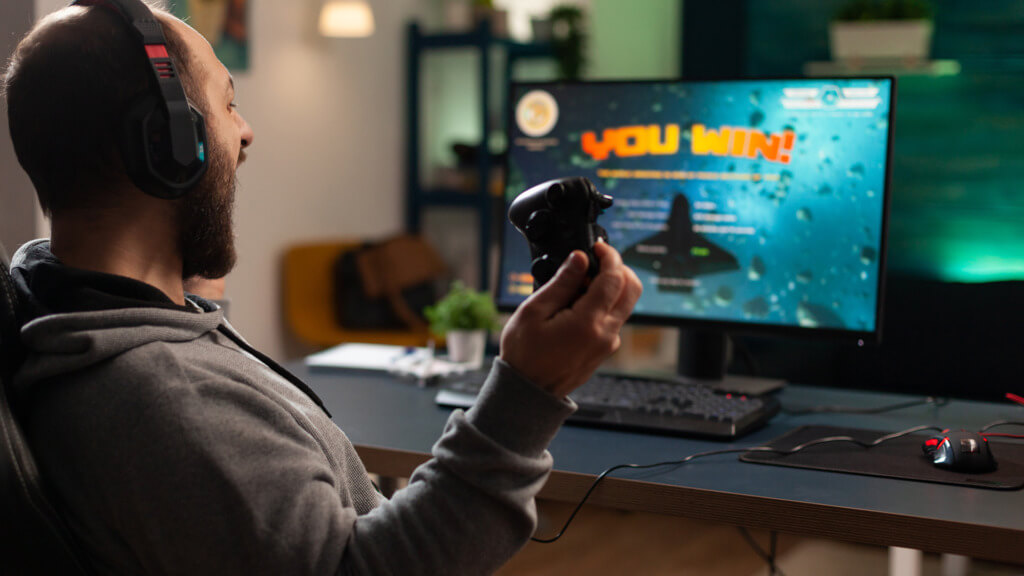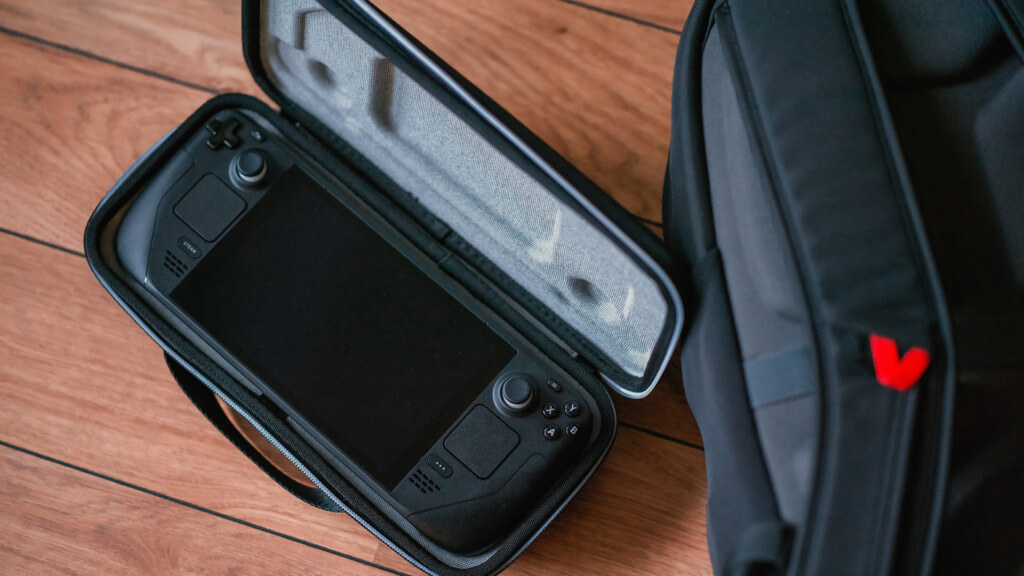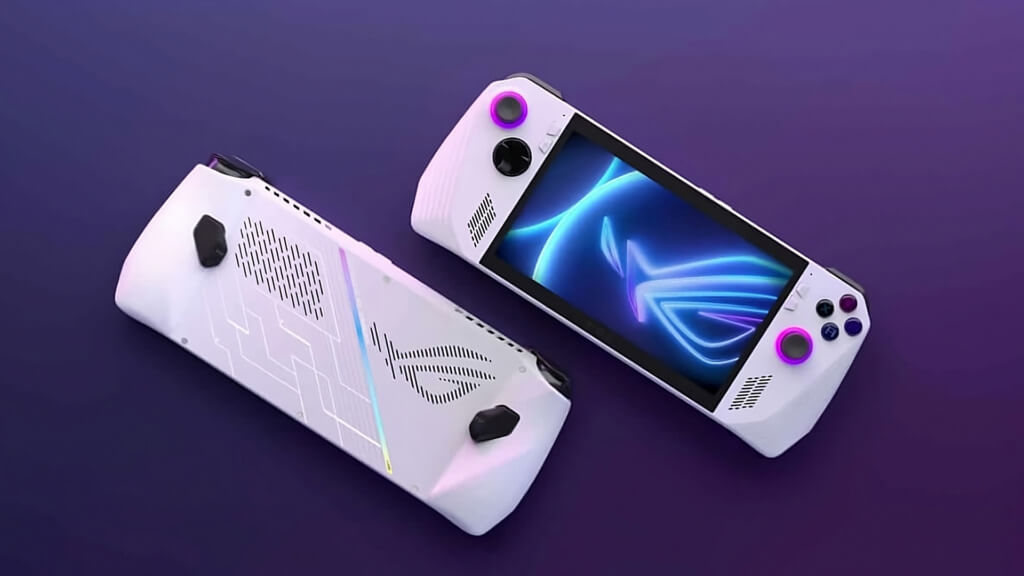Navigating the digital frontier: An analysis of Yuzu and Ryujinx emulators
Explore the world of Nintendo Switch emulation with an in-depth look at Yuzu and Ryujinx. Discover their unique features, legal aspects, and potential on devices like the Steam Deck and ROG Ally.

As you journey through the fascinating realm of gaming, one thing that might pique your interest is the concept of emulation. This isn’t your typical gaming; we’re talking about replicating the functionality of one gaming system on another. This idea brings a new layer of versatility and adaptability to the gaming world. Particularly, Nintendo Switch emulators have been making waves in the gaming community. In this insightful comparison, we’ll dive into the intricacies of two major Nintendo Switch emulators, Yuzu and Ryujinx, to reveal what each offers.
Table Of Content
- Emulation evolution mobile versatility and beyond
- Legal concerns and consideration for emulation
- Yuzu and Ryujinx in a tussle for Nintendo Switch emulation supremacy
- Switch emulation takes the stage on Steam Deck
- The ROG Ally: A potential powerhouse for Switch emulation
- Embracing the future: The final analysis
Since its launch in 2017, Nintendo Switch has carved its niche in the handheld gaming segment, providing top-notch games with its unique hybrid capabilities. However, like any other console, it has its limitations, and that’s where emulators come into play. As we delve deeper into the world of Nintendo Switch emulation, we will discover its potential, the legalities involved, and its future, with a focus on how these emulators work on handheld PCs like Steam Deck and ROG Ally.
Emulation evolution mobile versatility and beyond
Navigating the vast sea of technological advancement, one encounters prominent fascinating phenomena. This concept, entrenched in digital evolution, echoes the symbiotic relationship between software and hardware. In essence, an emulator is a quintessential piece of software that replicates the functionalities and behaviours of a different system – often a gaming console, on another system, usually a PC. This technology lets us cross the boundary lines drawn by hardware limitations and brings a sense of limitless flexibility to the gaming world.
At the heart of this captivating technology lies the goal of versatility and convenience. The idea is simple yet revolutionary: bringing the power of your favourite gaming console to your computer. You might wonder about the significance of this transition. Here’s the deal: Emulation brings games to a platform with arguably higher computational capabilities, potential for graphical enhancement, and versatile control options.
For instance, a Nintendo Switch emulator allows you to experience the joy of playing ‘The Legend of Zelda: Breath of the Wild’ or ‘Super Mario Odyssey’ right on your PC. This opens up the possibility of playing these games with higher graphical fidelity and introduces options for customisation and modifications that are typically absent in the console realm.
Moreover, the evolution of emulation is closely intertwined with the growth of mobile computing power. Mobile devices have seen an exponential increase in their computational capabilities over the years. This evolution has paved the way for running complex emulators that were once considered beyond mobile computing. Running Nintendo Switch games on your mobile device or a handheld PC is no longer a dream but a reality made possible by the progressive march of emulation technology.
Also, emulation’s contribution isn’t confined to just gaming. It also plays a significant role in software development, testing, retro computing, and digital preservation. By mimicking the behaviour of obsolete or distinct hardware, emulators help maintain the legacy of older software and games, making them accessible for future generations.
So, the next time you run a Nintendo Switch game on your computer, remember that you’re not merely gaming; you’re participating in a digital revolution, a testament to our relentless pursuit of adaptability and growth. The realm of emulation is a vivid illustration of the evolutionary spirit of our digital world.
Legal concerns and consideration for emulation

Engaging with emulation inevitably leads to encounters with complex legal matters. As we continue our voyage into the world of emulation, it’s time to unveil and address the looming questions about legality. The curious intersection of emulation and copyright law is a complicated subject, filled with its fair share of myths, uncertainties and heated debates.
In the broadest terms, the emulation software itself is entirely legal. This legality stems from the fact that emulators are essentially replicating the hardware functionality of a gaming console in software, an act that falls under the concept of reverse engineering. Reverse engineering to create compatible products is generally accepted and protected under the law. Court cases such as Sony Computer Entertainment vs Connectix Corporation have reinforced the legality of emulation software. In this case, Connectix’s Virtual Game Station, a PlayStation emulator, was deemed not to infringe on Sony’s copyright as it was a product of reverse engineering.
However, while the software enabling emulation is legal, the waters get murkier when you consider ROMs, the emulators’ game files. A ROM (Read-Only Memory) image is a computer file containing a copy of the data from a read-only memory chip, often from a video game cartridge. Downloading or distributing ROMs without proper authorisation infringes on the copyright holders’ rights and is, therefore, illegal in most jurisdictions.
Despite common misconceptions, owning the original game does not automatically grant you the right to download or distribute corresponding ROMs. Although, in some countries, making a backup copy of the game you own is permitted under the concept of ‘fair use,’ it does not extend to sharing those copies with others. It’s important to remember that copyright law can vary significantly between regions, so what might be permissible in one country could be illegal in another.
The line between legality and illegality becomes fuzzier in the world of abandonware, software no longer sold or supported by its creator. While some argue that copyright laws should no longer apply to these, the legal system has been slow to adapt, and laws protecting these outdated titles remain firmly in place.
Legal considerations can seem daunting when exploring emulation. Still, by being mindful of the source of your ROMs and always striving to respect the rights of the original creators, you can enjoy the benefits of emulation. Emulation’s goal isn’t to facilitate piracy but to expand how and where we can enjoy our favourite games. This ethos has driven the community’s efforts in creating original homebrew games for emulators and seeking to respect the legal boundaries surrounding this vibrant technology.
Yuzu and Ryujinx in a tussle for Nintendo Switch emulation supremacy
As the curtain rises on the gladiatorial arena of Nintendo Switch emulation, two stalwarts stand ready for battle – Yuzu and Ryujinx. Both contenders have fought valiantly to recreate the quintessential Nintendo Switch experience on PCs, each boasting a unique arsenal of features. This section unfurls the tapestry of their journey, feats, and the games that shine under their aegis.
Yuzu, a brainchild of the masterminds behind Citra (the Nintendo 3DS emulator), is the pioneer in Nintendo Switch emulation. This emulator has seen remarkable progress since its inception and boasts compatibility with many games. For instance, popular titles such as “Super Mario Odyssey,” “The Legend of Zelda: Breath of the Wild,” and “Pokemon Sword and Shield” run commendably well on Yuzu. One of Yuzu’s crowning achievements is the implementation of Resolution Scaling. This feature allows gamers to render games at much higher resolutions than the Nintendo Switch’s native resolution. Imagine the picturesque landscapes of “The Legend of Zelda: Breath of the Wild” with sharper textures and crisp details, which elevate the already breathtaking visuals to a whole new level.
In the opposite corner, we have Ryujinx – the open-source contender. What Ryujinx lacks in age, it compensates with a remarkable performance pedigree and an extensive compatibility list. Certain games, such as “Animal Crossing: New Horizons,” and “Xenoblade Chronicles Definitive Edition,” have been reported to perform even better on Ryujinx than on the actual Nintendo Switch console. Ryujinx’s pièce de résistance lies in its ability to emulate Amiibos – Nintendo’s innovative toys-to-life platform. This emulation breathes life into the physical Amiibo figures and enhances in-game features across various titles. For instance, in “The Legend of Zelda: Breath of the Wild”, using specific Amiibo figures through Ryujinx can unlock exclusive in-game items and gear.
Another point of contention between the two emulators is the user interface. Yuzu aims for a more streamlined and beginner-friendly interface, making it easier for newcomers to dive into gaming without hassle. Ryujinx, in contrast, offers a more straightforward interface which can be a treasure trove for advanced users seeking to fine-tune their experience.
Both emulators also engage in a tug-of-war regarding performance optimisation and accuracy. Yuzu often leads the charge with experimental features and enhancements but sometimes at the cost of accuracy. Ryujinx tends to focus more on accuracy and stability, ensuring that the games look good and run as close to the original hardware as possible.
Ultimately, the choice between Yuzu and Ryujinx might be personal preference and specific game compatibility. Some might prefer Yuzu’s high-resolution graphics and user-friendly interface, while others may gravitate towards the Amiibo emulation and fine-tuning capabilities of Ryujinx. What remains undeniable is that both emulators have revolutionised the Nintendo Switch emulation landscape, gifting gamers an expanding universe of possibilities.
Switch emulation takes the stage on Steam Deck

Bursting onto the scene as a veritable portable PC, the Steam Deck has earned plaudits for its versatile gaming capabilities, further enhanced by its Linux-based SteamOS. This flexibility extends to emulation, making it a potential platform for Nintendo Switch emulation through Yuzu and Ryujinx.
Both these emulators have exhibited promising results when implemented on the Steam Deck. Thanks to its custom APU developed in cooperation with AMD, the Steam Deck proves a competent host, rendering games with appreciable performance. That said, the success of emulation on this handheld PC largely hinges on the specific game. For instance, action-adventure titles like “The Legend of Zelda: Breath of the Wild” may vary in frame rate compared to lighter, less demanding titles like “Animal Crossing: New Horizons”.
Moreover, the Steam Deck’s user-friendly interface and docking capabilities lend themselves well to the emulator experience, making it an enticing prospect for Nintendo Switch enthusiasts seeking a hybrid gaming experience.
The ROG Ally: A potential powerhouse for Switch emulation

The ROG Ally is another enticing candidate in the realm of handheld gaming devices that can serve as a platform for Nintendo Switch emulation. Boasting an impressive set of specifications under its sleek exterior, this device can deliver an enhanced emulation experience.
Running on Windows 11, the ROG Ally has the latest AMD Ryzen Z1 Extreme APU and a 120Hz high-refresh-rate display. Such robust specifications allow it to run most Switch games smoothly using the Yuzu or Ryujinx emulator. The high refresh rate display can significantly elevate the gaming experience, offering a smoother visual output that is particularly beneficial for fast-paced action games like “Super Smash Bros. Ultimate”.
Switch emulation on the ROG Ally is about the hardware capabilities and the user experience. Its comfortable, ergonomic design ensures that even extended gaming sessions feel comfortable. Add in the ROG Ally’s seamless integration with various gaming platforms, and you have a versatile device that could deliver a superior Nintendo Switch emulation experience.
In both cases, it’s a testament to how far emulation has come, successfully bridging the gap between different platforms and enhancing the portability of high-quality gaming. Emulation on devices like the Steam Deck and ROG Ally opens up new frontiers in gaming, offering players more flexibility and choice than ever before.
Embracing the future: The final analysis
We live in a gaming world filled with rapid advancements and endless possibilities. Emulation is a beacon of flexibility and versatility in this vast digital landscape. It’s not merely about replicating console games on a PC; it’s about enhancing the gaming experience, breaking down barriers, and unleashing a new realm of possibilities.
Our exploration of Yuzu and Ryujinx has demonstrated that both offer unique advantages and are continually evolving to provide an enriched gaming experience. The ultimate choice is personal preference and the specific games you wish to play.
As we cast our eyes forward, the potential for Nintendo Switch emulation on handheld PCs like the Steam Deck and ROG Ally is undeniably exciting. As the line between console and PC gaming continues to blur, we look forward to a future where the best of both worlds seamlessly merges to create an unparalleled gaming experience. As players in this digital evolution, the only thing left to do is strap in, enjoy the ride, and embrace the exciting future of gaming.
Editor’s note: The following article provides an analysis of emulation technology for research and informative purposes. It does not promote or encourage illegal activities, including the download or distribution of pirated games. We strongly recommend using emulators to play legally obtained games.
















